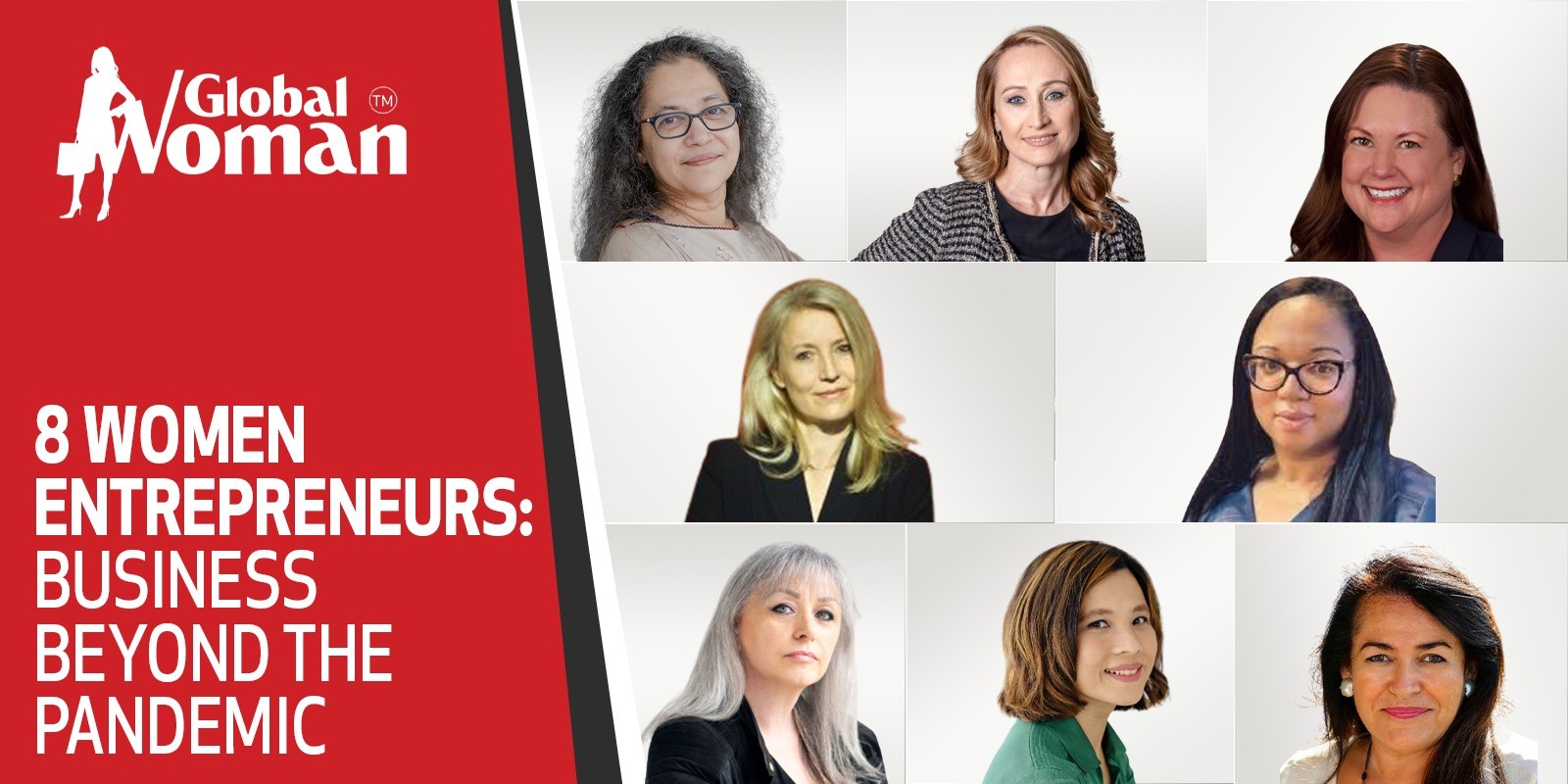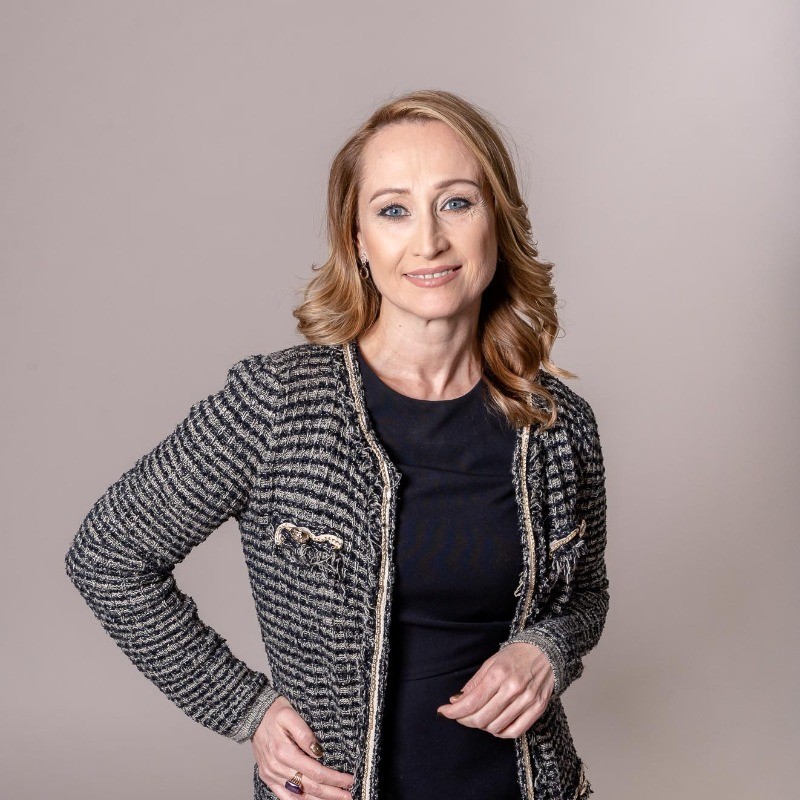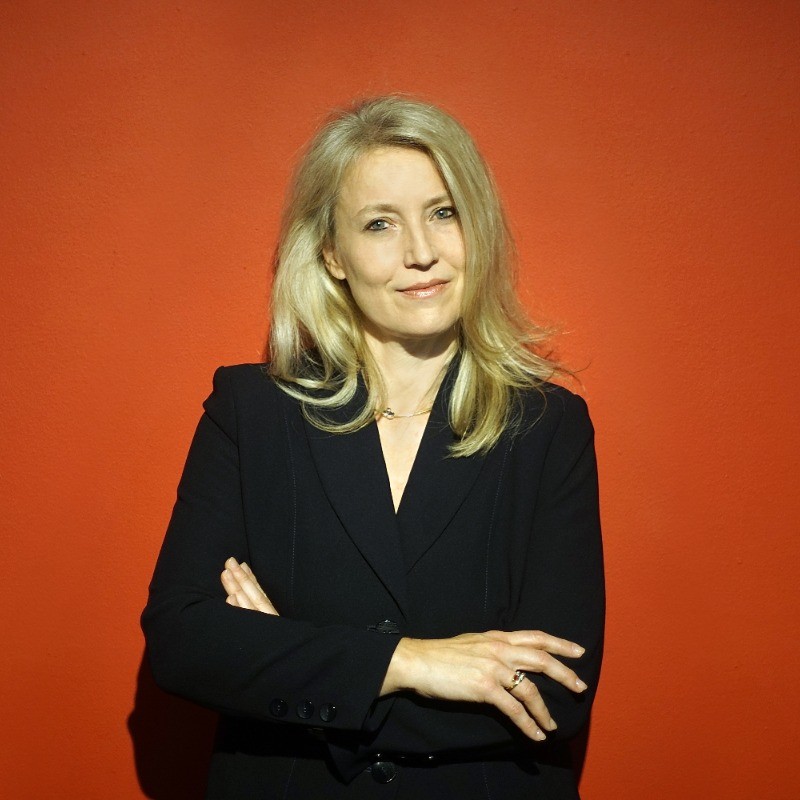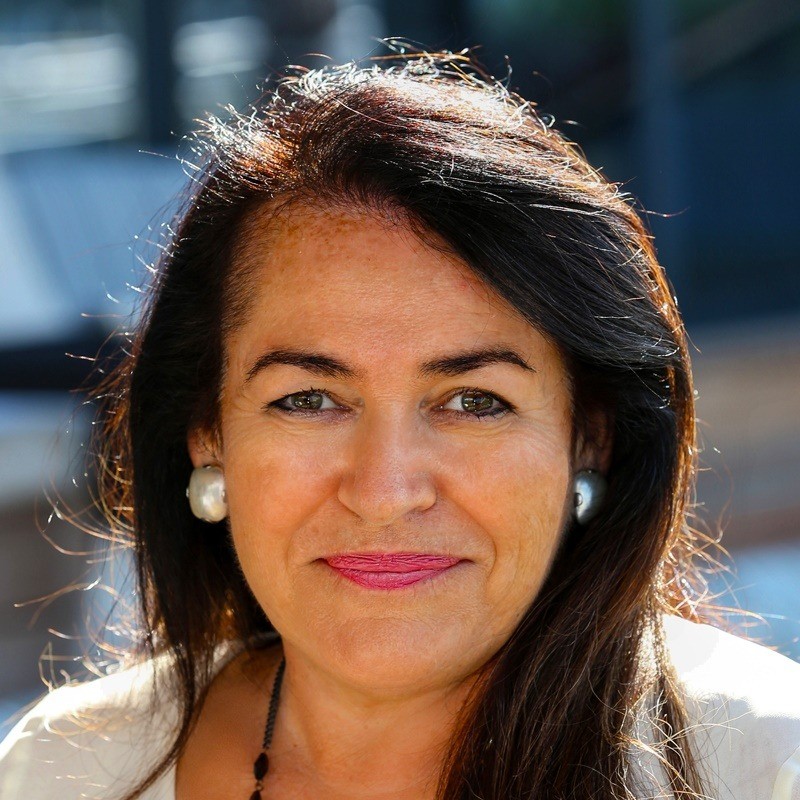
8 Women Entrepreneurs: Business Beyond the Pandemic
By Sujany Baleswaran
The New York Times has labelled the post-pandemic world the ‘Age of Anti-Ambition’. The pandemic has led to millions quitting their job, with careers and entrepreneurial businesses falling apart, and society seeking something more fulfilling than an income. With women in business forced into an environment juggling work and life, the boundaries between home and work have blurred.
Two years on, businesses are adopting new innovative strategies, and the working world is addressing the necessity of work-life balance – the new normal. We spoke to 7 women in business, and they share their perspectives on the less discussed positives of the pandemic and how businesses can create a winning business model in this post-pandemic world.
Sujata Tiwari
People engagement in real time has become an inevitable reality for people’s relevance and survival.

Specialising in a myriad of sectors, Sujata Tiwari has a background in Criminology and Forensic Sciences as well as Disease and Nutrition. She is a life-mentor, entrepreneur, writer and consultant, with a mission to enhance people’s lives, business and safety through her work.
Life-altering moments in our lives disrupt the flow and schedule. The ones that are caused by nature are the toughest as we are caught off guard and not prepared. The latest pandemic is one such example.
Women entrepreneurs and professional women in business have worked doubly hard to reach their destination. Sudden loss of the business or employment requires mental agility and acceptance of the situation and then pivoting, reinventing themselves even dramatically to do something they have never done or even thought of doing. When my retail business took a hit, I became a published author and life mentor. The accumulated wisdom gained from life experiences turned into a tool for supporting and helping people who were stuck in their zones.
Businesses had to change their mindset and strategies from brick and mortar model to 100 per cent online as modus operandi. People’s engagement in real-time has become an inevitable reality for people’s relevance and survival.
A winning business model:
- Focus on an open-door policy.
- Out of the box approach to economic viability according to the current situation
- Short time and long term goals.
- Be kind and understanding.
Irena Jakimova
We are still struggling to find a balanced life…

With vast experience in the fields of marketing, advertising and PR, Irena Jakimova is the Founder of INSPIRIT coaching. With women empowerment at the forefront of her coaching, she helps leaders become more focused, speak more confidently, and be more aware of their own value and presence.
During the pandemic, I learnt how to take on another pace, how to rejuvenate, find even more joy in my work, and strengthen my resilience muscle…
The pandemic has led to a whole spectrum of effects, some women were hit really hard, depending on the business they were in or their family situation. However, some used this time to strengthen their skills, find another job or passion/hobby, rearranged their life views and planned their next move. In general, it was more difficult for women due to the multiple roles they juggle – we are still struggling to find a balanced life with family, with obligations around the house, food, and caring for children and elders.
Looking past the challenges, the pandemic has led to some positive opportunities. People got more connected globally, digitalization offered us tools and ways for higher productivity, and many people started to look after their health in a more profound way, turning their attention towards themselves.
Turning to the post-pandemic business world, as someone who specialises in women-owned businesses, the winning business model is the one that takes into consideration the following aspects:
- her passion and zone of genius (what to offer and how)
- the habits and needs of the customers
- the social (family) environment of the woman business owner.
Ronda Robinson
You can’t read the label from inside the jar…

Certified Professional in Talent Development and Master Performance Consultant, Ronda Robinson’s vision is to infuse more humanity into the workplace, resulting in happier employees. Ronda has been recognised for accelerating performance by creating pragmatic solutions with a people-first orientation,
If you are working long hours, not making enough money, struggling to switch off after work, feeling stressed, or feeling unfulfilled, you are not alone. In fact, these are common scenarios among business owners, entrepreneurs, professionals, and employees, too.
Attempts to label the impact of the pandemic include The Great Resignation, The Age of Anti-Ambition, and The Great Reshuffle. Upon a closer look, it is The Great Alignment.
Workforce frustration stems from general human needs including biological (e.g. food, water, sleep), safety (e.g. shelter, freedom from fear, job security), belonging (e.g. inclusion, friendship, trust), esteem (achievement, feeling valued), and cognitive (e.g. purpose, knowledge, personal growth, and experiences).
The pandemic broke the proverbial jars and allowed people to clearly identify new labels based on what they need the most. Now they are seeking employers that align with those needs.
Thriving organisations explicitly and consistently align compensation, benefits programmes, and culture with the spectrum of employee needs. These actions translate to the bottom line with reduced turnover, higher employee engagement, greater innovation, and stronger adaptability to change. Everyone wins.
Astrid Schmitt Bylandt
There is ALWAYS something happening in the world, and there are always new opportunities arising from that.

Founder of Solution Finder, Astrid is an entrepreneur, mentor and motivational speaker. After a successful run in the business world, Astrid made the decision to go back to her roots of helping people, training people who are unemployed to find their way back into work, into society and into a much happier life and supporting people to launch new businesses.
Every year brings new challenges. When lockdown came, my travel business died completely and I had to think about how to coach my clients when I couldn’t meet them face to face – everyone went online. There is ALWAYS something happening in the world, and there are always new opportunities arising from that.
One thing for sure though, is that the health and wellbeing issues that have arisen from the pandemic for single people or people in relationships that were already not working well before the pandemic, will for sure have suffered a lot more. I have seen a lot more cases in my coaching with domestic abuse, unhappy relationships and being just overwhelmed by the fear of being out of work and the need for money and the fear of homelessness.
In terms of positives, I think quite a lot of businesses have now adopted the home and office working rules, I certainly have now got a lot more flexible approach when people want to take days to work from home. I personally value my re-gained freedom more, I am grateful to see friends again. It does feel like coming out of a tunnel. If everyone appreciates this freedom and gives more gratitude, then I think we have all gained at least a little bit out of the whole very tough two past years.
Jacqueline Lawrence
As the dust begins to settle, we count the true cost of the pandemic…

After 15 years in the corporate sector, working in the legal world of finance, Jacqueline Lawrence discovered her passion for helping others succeed. Jacqueline provides a coaching service helping ambitious individuals, supporting them with career change, finding new roles or stepping up the career ladder.
Devastating, crippling, wreaking havoc, and catastrophic, are all words we associate with the impact of the coronavirus pandemic. Millions of peoples’ lives were turned upside down, with many losing their careers, and homes, increases in health issues, and long-standing businesses and well-known brands disappeared from the high street. The disruption caused to all of us, and the global economy by the pandemic has resulted in a huge shift in the way we live, operate and work in society. As the dust begins to settle and we count the true cost of the pandemic, we can reflect on what this unprecedented time has taught us. It is easy to see the adverse effects, but how about the positive outcomes?
For example, it resulted in greater business innovation. New businesses were birthed and existing businesses had to re-evaluate their business models, together with their business continuity processes. New working methods were adopted to enable them to continue operating in the stressed environment. There was greater use of technology, as businesses shifted to remote working facilitated with the use of virtual meetings. Businesses who relied on sales through a physical presence enhanced existing websites to significantly increase e-commerce capability. Some service-based businesses which only operated face to face were able to offer online solutions.
The pandemic led to behavioural changes, with people taking the time to pause and reflect on what they truly value. Some decided to transition to new careers or search for a better work-life balance. Many made more of an effort to keep in touch with relatives and support others within their community. Some people even changed their spending habits, paying more attention to where and how they spend their money in future.
Covid-19 and its impact on all, has reshaped how businesses view the viability of their business models and how they will engage and operate in the ‘new’ normal. Inevitably this has accelerated the shift towards a more digital transformative outlook, which recognises customer behavioural changes and the wider emotional socio-economic factors, and this can only be positive in the long-term.
Jacqueline Norton
During the first year of the pandemic, there seemed to be a divide between all or nothing in terms of work…

After 25 years working in IT solutions, Jacqueline moved into coaching and is now the founder of Aurate, a company that works on inner transformation, achieving results that are closer to alchemy than therapy.
I left my job at a major firm of accountants in March 2021 not due to the pandemic, but due to wanting to develop my business. However, during the first year of the pandemic, there seemed to be a divide between all or nothing in terms of work, and I certainly experienced a huge increase in the volume of back-to-back video conference calls and meetings that took up what would normally be commuting or eating times and spilling over into non-work time. This did leave many overwhelmed with the sheer volume of increased work.
As work-life spilt over into home life – women had to make space at home to work, school children and care for anyone who became sick. Of course, men, too, had to do this – the stereotypical roles were changing. We all had to learn how to be in a smaller environment together, meaning that they needed to juggle even more in terms of space, relationships and boundaries.
The pandemic has altered our work life. A wide variety of adjustments have been considered and tried, from technology to enable remote working, to the security that makes it safe to do so. Culturally, we’ve had to find ways to connect or feel like we are connected, remotely – understanding what challenges people might be facing, to receiving the news that they may be feeling more vulnerable in a compassionate way.
Businesses are of course varied in the way they need to engage with both their customers and their employees and what is appropriate for one will be less so for others – but to open the lines of communication and feel in more control of how they work, are productive and engaged is more of a factor than ever. The key is engagement and communication that truly supports people in the way they need and serves all parties well.
Anda Goseco
Even when I was tired, I would push myself to do more.

Anda is a coach, mentor and trainer based in the Philippines who specialises in helping to leaders focus on self-mastery, and build effective teams. She is the founder of the Spotify Podcast Series, Leading Great Workplaces, focusing on how to build workplaces where people can thrive.
The pandemic was challenging for so many people. It was difficult for me because I felt uncertain. During the first year of the pandemic I became very busy doing so many things.
As a mum and an entrepreneur, I wanted to be able to do all my roles and responsibilities well. Even when I was tired, I would push myself to do more. I was afraid of having no value and being unproductive.
Since I was constantly chasing time and responsibilities, it eventually led to burnout, where I just did not want to do anything. I realised that I had to find myself again because I was lost in being busy. I had to give myself more compassion and self-care. The gift of the pandemic was the ability to pause and realign with what was important to me.
Companies need to prioritise the overall well-being of their employees. If they don’t listen to what their people need, it can lead to burnout. They should revisit their structure and look at how this supports programmes to help the emotional, mental and physical health of their employees. It is the role of the company to take care of people. Shifting the focus on people strategy will create more committed, productive and engaged employees.
Yasmina Rauber
Women must find solutions so that their careers and childcare are both sustainable, enjoyable and rewarding, financially and emotionally.

With over 25 years experience in the corporate world, Yasmina turned to coaching, with a mission to guide women to true confidence, career clarity & leadership success. Yasmina provides transformational and business coaching, and hosts her own signature Women in Leadership programme.
Although I personally have not had any repercussions arising directly from the pandemic, I’ve been hearing from many of my clients that unfortunately, the lion’s share of childcare and tutoring has fallen on women’s shoulders. Many have had to put their careers on the back burner while the children were being homeschooled or were underfoot all day. One positive outcome of the pandemic is that this situation has been recognised and discussed at length.
Women now know that they must find solutions so that their careers and childcare are both sustainable, enjoyable and rewarding, financially and emotionally. They are looking for tools to help them achieve these goals.
Through organisational methods, self-care and self-realisation, women can discover solutions to these problems. Businesses must integrate these kinds of methods in order to achieve success if they want to keep their feminine workforce, which is key to their productivity, effectiveness and happiness.





